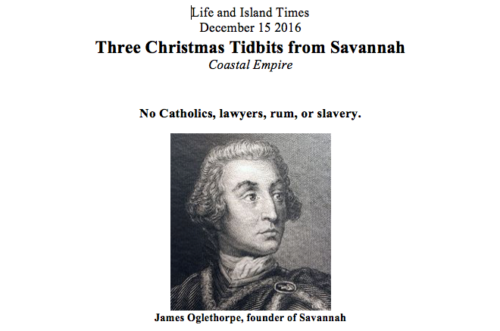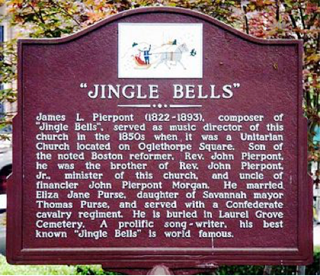Marlow’s Coastal Empire: Christmas Tidbits from Savannah

From the time James Oglethorpe and the original colonists arrived in 1733, the new colony of Georgia had plans of freedom for all, unless you were Catholic. Or a lawyer. Or if you drank.
The first of these bans to be lifted was that of “spirituous liquors” in 1742.
Shortly thereafter, relations between England and Spain temporarily improved with the Catholic ban lifted in 1748.
Two short years later in 1750, Georgia abandoned the utopia ideal altogether and joined the other colonies in allowing slaves.
Not surprisingly, the idea of a society in which inhabitants could settle disputes among themselves died with the rest of these bans. The ban on lawyers was lifted (or just ignored) in 1755. Isn’t it odd that the lawyer ban lasted the longest?
Savannah was a Christmas gift to President Lincoln from General Sherman

General William T. Sherman
Well, sort of. Toward the end of 1864, Savannah was one of the few remaining major ports under Confederate domain. After taking Atlanta, Union General William T. Sherman made his famous “March to the Sea,” burning everything in his path. Six weeks later, on December 22, 1864, Sherman wired the following message to President Abraham Lincoln: “I beg to present you, as a Christmas gift, the city of Savannah, with 150 heavy guns and plenty of ammunition, and also about 25,000 bales of cotton.”

“Jingle Bells” was reportedly written in Savannah
At least the sign above says so. One of the most popular songs to sing during the Christmas season is believed to have been written in Savannah by James L. Pierpont. Originally from Massachusetts, Pierpont reportedly missed the snow while living in the South. A nod to his Massachusetts days, this song was inspired by the one-horse open-sleigh races.
Copyright © 2016 From My Isle Seat
www.vicsocotra.com
